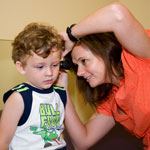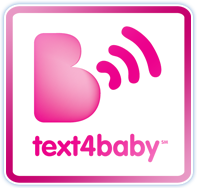By Dr. Phyllis Townsend
Having a baby can be anxiety provoking, but actually bringing one home can be down right scary!
Let’s talk about how to get ready to bring your baby home.
First off, make sure you have a reliably installed car seat. It doesn’t have to be the most expensive car seat, it just has to one that fits your car, fits your child and is correctly installed. Have your car seat installation job checked by an expert. Find a place to get it inspected at SAFECAR.GOV. Keep in mind the hospital parking lot is no place to install the car seat for the first time!
Sleeping arrangements the first couple of weeks are sometimes in flux but there are a couple of absolute no-no’s. Do not put your baby to sleep on their stomach. This places them at risk for Sudden Infant Death or crib death. Babies are safest sleeping on their back. Also, don’t sleep with your newborn baby in bed with you. Parents have been known to rollover and smother their babies in their sleep.
While bumper pads look really pretty around that crib, unfortunately they are dangerous too! They allow baby’s heads to get trapped and some have died as a result. Instead of the cloth bumper pads, there are now mesh ones which serve the same functional (though not decorative) purpose. Make sure the mattress in the crib or bassinette fits tightly and there is no room for your baby’s head to get wedged between the mattress and frame.
There will probably be some fussy times ahead with your new baby and you’ll need to be ready. A blanket to swaddle can be helpful as an integral part of the 5 S’s to help soothe a fussy baby. Those S’s are – swaddle, shushing, swinging, sucking, and side/stomach (holding). Some way to swing your child, whether it’s in your arms in a rocking chair, or in a mechanical swing can be a lifesaver. A heating pad placed in the bed to warm the it before you put the baby in sometimes helps falling asleep a little easier.
Lastly protecting your new baby against illness is very important. Minimizing his/her exposure to potentially sick people is paramount, so staying at home is probably smart. Make everyone washes their hands before holding your baby is important since many germs are spread through contact.
Ensure caregivers have their Flu and TdaP vaccines. Both influenza and whooping cough (pertussis) can be deadly to infants. Since your baby will not be old enough to be vaccinated for some time, the best way to protect them is to vaccinate those around them.
Have a digital thermometer to check to baby’s temperature rectally. Ear thermometers, pacifier thermometers and forehead thermometers are notoriously unreliable. It isn’t necessary to take your infants temperature daily, but if they are feel warm, are very fussy, or difficult to arouse it is a good idea to take a rectal temp. If it is under 98 degrees or over 100.4 in the first 2 months of life it is imperative that you call your baby’s pediatrician. This can be a sign of serious illness!
Having a newborn can make you anxious but it can also be one of the most rewarding experiences of your life.
Do hold your baby and talk to your baby. Read and play music to your baby. These are thing that are shown to help with adjustment and development. Above all, try to enjoy the amazing adventure you have embarked upon with your newborn.
The information and content on our website should not be used as a substitute for medical treatment or advice from your doctor.




